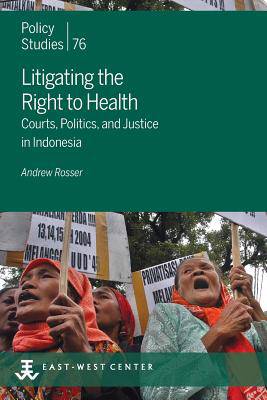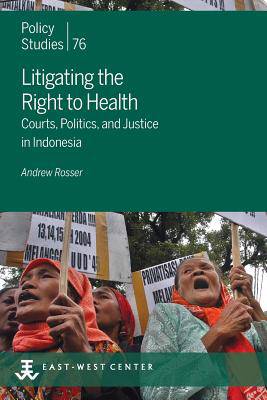
- Retrait gratuit dans votre magasin Club
- 7.000.000 titres dans notre catalogue
- Payer en toute sécurité
- Toujours un magasin près de chez vous
- Retrait gratuit dans votre magasin Club
- 7.000.0000 titres dans notre catalogue
- Payer en toute sécurité
- Toujours un magasin près de chez vous
Description
Recent increases in health rights litigation in low- and middle-income countries triggered debates regarding the effects of such litigation on the equity and effectiveness of health systems. Proponents argued that such litigation promotes health rights by holding governments accountable. Critics claimed that, as such litigation is employed mostly by the middle-class, it leads to regressive health spending and access. A third group suggested that results depend on whether such litigation is individually or collectively focused--with individually focused litigation helping only individuals while collectively focused litigation potentially helps larger numbers. This study examines Indonesia's experience with health rights litigation and efforts promoting health rights in developing countries in general. The fall of Indonesia's New Order triggered changes in the 1945 constitution and new legislation strengthening the nation's right to health. This encouraged Indonesians to demand health-related entitlements in court. This study argues that such litigation promotes health rights by precipitating policy changes. This study points to broader preconditions for rights-friendly changes. It contends that collectively focused litigation drives progressive effects when there is some degree of elite responsiveness; when actors, resources, and alliances enabling legal mobilization exist; and when legal mobilization occurs in the context of wider political mobilizations.
Spécifications
Parties prenantes
- Auteur(s) :
- Editeur:
Contenu
- Nombre de pages :
- 76
- Langue:
- Anglais
- Collection :
- Tome:
- n° 76
Caractéristiques
- EAN:
- 9780866382786
- Date de parution :
- 13-09-17
- Format:
- Livre broché
- Format numérique:
- Trade paperback (VS)
- Dimensions :
- 156 mm x 234 mm
- Poids :
- 154 g

Les avis
Nous publions uniquement les avis qui respectent les conditions requises. Consultez nos conditions pour les avis.






